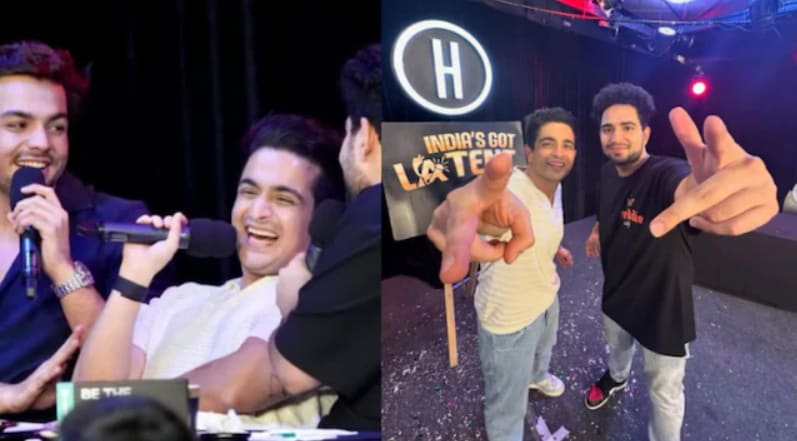Comedian Samay Raina took to social media on Wednesday to announce the removal of all videos of his YouTube show, India’s Got Latent, following the major controversy involving YouTuber Ranveer Allahbadia. Since the scandal broke, brands and marketers have broken ties with the influencers and the show, distancing themselves from the popular creators, as per industry insiders. A recent reel campaign for fast-food giant KFC, featuring Raina and other comedians, has disappeared from timelines and Myntra has also dumped a Valentine’s Day collaboration with Raina. Insiders tell us that the popular YouTube show had also lost a major FMCG brand deal as a result of the controversy surrounding the Allahbadia episode.
“We heaved a sigh of relief. We were in a dilemma whether to come on board as a sponsor for India’s Got Latent. We decided not to as the show’s content didn’t align at all with our values. That was a good gut decision,” says a marketing head of an FMCG brand. “Popularity is not everything in brand building,” says the marketer who wished not to be named.
The controversy began when Allahbadia, a national award-winning creator known for his podcasting, made a remark during an episode of Raina’s show, asking a contestant, “Would you rather watch your parents have sex every day for the rest of your life, or join in once and stop it forever?”
Post the controversy, Allahbadia, who has two Instagram profiles, has seen a decline in his follower count, losing thousands. Guests have also turned the away the opportunity to be on his podcast. The controversy has also impacted brand partnerships for the influencers and the show, India’s Got Latent.
An apparel brand, which had previously explored a partnership with Raina’s show India’s Got Latent, has now decided to distance itself. “The show has not been effective in elevating the brand,” says a representative. “In fact, it has occasionally attracted negative press, which brands are hesitant to engage with. No company wants to risk regulatory scrutiny or face backlash from the audience.”
While this incident has intensified discussions around influencer accountability and responsibility, industry experts believe it won’t significantly slow down influencer marketing.
Brands may definitely increase scrutiny of choosing their partner influencers, but there are many factors a brand may consider – the audience, the objective of the partnership (reach vs relevance) and the personality of the brand. While influencer partnerships will not go away as they offer creative freedoms, there will definitely be greater scrutiny in selection.
A downside of this could be more scripted, “annoying, banal brand-speak inserts” which has been a problem with influencer partnerships of late that are merely exploited for reach and mentions, notes Pranoy Kanojia, Vice President Strategy, Enormous.
He adds, “The way to take advantage of the caution in the wind is to ensure more brand value fit with the influencer. At the end of the day, most influencers are curated personalities – which is also not so different from the A-lister celebrities from Bollywood and Cricket.”
The key going forward, Kanojia says, is for brands to partner with influencers who genuinely reflect their ethos rather than chasing reach alone.
This sentiment is echoed in the broader growth of influencer marketing. A report by Qoruz, highlights that the number of influencers in India has grown from 9,62,000 in 2020 to 4.06 million in 2024 — a staggering 322% increase. By 2025, the Arts & Entertainment category alone is projected to reach 4,30,000 influencers, underscoring the continued expansion of the space.
But there could be some temporary shift to more mainstream media strategies and plans by some brands, industry executives say. More significantly, brands are likely to increase their due diligence in choosing influencers with a lower risk of controversy, suggests Hema Malik, chief investment officer, IPG Mediabrands India.
A leading marketer at a major consumer brand tells Storyboard18, a period of correction is way overdue. “Influencers and creators were going out of hand – from inflating their followers counts, rates and reach to other violations that would leave brands exposed. Marketers are also to blame as everyone is chasing virality and not value,” he says, adding “the thinking has been too short-term focused for far too long.”
The value just doesn’t justify the investments every time and a recalibration is necessary if the influencer marketing industry is to grow sustainably, says another marketer who chose not to come on board as a sponsor on India’s Got Latent, choosing to go with his instinct over pursuing the views and virality of the show.
Sandeep Goyal, Managing Director at Rediffusion, further reinforces this view, emphasizing that influencer marketing will continue to grow. He believes brands will simply become more discerning, cutting ties with influencers caught in controversies while continuing to invest in those with strong reputations.
The need for stronger vetting processes is also echoed by Kejal Teckchandani, EVP of Influencer Outreach at FCB Kinnect. Teckchandani highlights that while controversies like these may spark discussions, they won’t derail the momentum of influencer marketing. Rather than pulling back, brands and agencies should focus on stronger due diligence – conducting thorough background and sentiment checks to ensure brand alignment.
Read more: 69% of India’s top 100 digital influencers fail to meet advertising guidelines: ASCI
